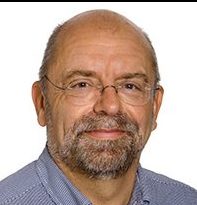
Gunnar C. Hansson
University of Gothenburg
Sweden
EMBO | EMBL Symposium
This conference will take place at EMBL Heidelberg, with the option to attend virtually. Proof of COVID-19 vaccination or recovery is required for on-site attendance. Please see EMBL’s COVID-19 terms and conditions.
For late registration please contact Maryann Heck.
This symposium provides a discussion platform for all scientists interested in the biology of infection. Cell biologists, microbiologists and immunologists will discuss in joint sessions recent progress in our understanding of host-pathogen interactions. Talks will focus on common processes, rather than particular infectious agents or host cell types, and the strategies of all major types of pathogens in their interaction with plants and animals will be covered. A better understanding of infectious diseases will come from the simultaneous analysis of microbial and host variables, which may open new avenues for treatment and prevention strategies.
“This was my first conference at EMBL. It was well organised and I loved it! The topics covered under the umbrella of innate immune response were diverse. As a beginner in the field of immunology, this conference has cleared up lots of concepts.” – Sadaf Sulman, University of Leicester, UK
“The meeting had a great balance of breadth and depth, presenting the most current work in host-pathogen interactions.” – Elizabeth Hartland, Hudson Institute of Medical Research, Australia
“EMBL conferences are always of exceptional quality. It was no different this time. I had an amazing experience and was able to network effectively.” – Sudeep Bhushal, Helmholtz Centre for Infection Research, Germany
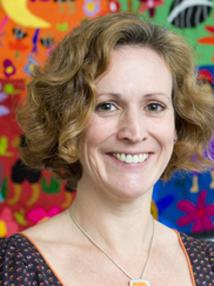
Imperial College London
UK
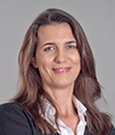
Helmholtz Centre for Infection Research
Germany

University of Exeter
UK

The Hospital for Sick Children
Canada

Max Planck Institute for Plant Breeding Research
Germany
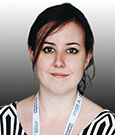
University of Birmingham
UK
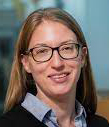
The University of British Columbia
Canada
(Virtual Speaker)
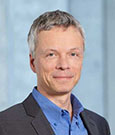
ETH Zürich
Switzerland
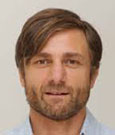
Weill Cornell Medicine
USA
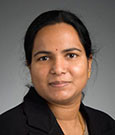
St. Jude Children’s Research Hospital
USA
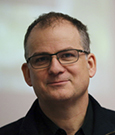
École Polytechnique Fédérale de Lausanne
Switzerland

Max Planck Institute for Developmental Biology
Germany

University of Birmingham
UK

Duke University
USA
(Virtual Speaker)
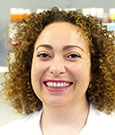
Institut Pasteur
France
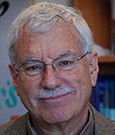
National Institutes of Health
USA
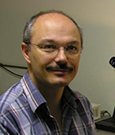
University of Geneva
Switzerland

Weizmann Institute of Science
Israel
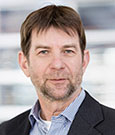
Leibniz Institute for Natural Product Research and Infection Biology – Hans Knöll Institute
Germany
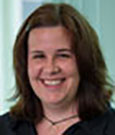
University of Texas Southwestern Medical Center
USA

MRC Laboratory of Molecular Biology
UK

National Institute of Biological Sciences
China

University of Zurich
Switzerland
(Virtual Speaker)
Got something to say? Tweet it! #EESImmunity
| Time (Europe/Berlin) | Speaker |
|---|---|
| 11:45 – 13:15 | Registration and Lunch |
| 13:15 – 13:30 | Opening remarks Felix Randow – MRC Laboratory of Molecular Biology, UK |
| 13:30 – 14:30 | Keynote lecture 1 Fanning the Flames: Pyroptosis in Viral and Bacterial Infection Judy Lieberman – Harvard Medical School, USA |
| 14:30 – 18:00 | Session 1: Sensing pathogens Session chair: Cyril Zipfel – University of Zurich, Switzerland |
| 14:30 – 15:00 | Pyroptosis in antibacterial and antitumor immunity Feng Shao – National Institute of Biological Sciences, China (Virtual speaker) Livestream only |
| 15:00 – 15:15 | Structural basis of membrane targeting and coatomer assembly by human GBP1 Tanja Kuhm – Delft University of Technology, The Netherlands |
| 15:15 – 15:30 | Mechanism of cGAS-like receptor (cGLR) signaling in animal innate immunity Yao Li – Harvard Medical School / Dana-Farber Cancer Institute, USA Livestream only |
| 15:30 – 16:00 | Layers of immunity: Deconstructing the Drosophila effector response Bruno Lemaitre – École Polytechnique Fédérale de Lausanne, Switzerland |
| 16:00 – 16:30 | Coffee Break and Meet the speakers |
| 16:30 – 17:00 | Biochemical mechanisms of plant NLRs Jijie Chai – Max Planck Institute for Plant Breeding Research, Germany |
| 17:00 – 17:15 | The FACT-ETS-1 Antiviral Response (FEAR) Pathway broadly restricts RNA and DNA viruses and is antagonized by poxvirus A51R proteins Don Gammon – UT Southwestern, USA |
| 17:15 – 17:30 | A wheat resistosome defines common principles of immune receptor channels Alexander Förderer – Max-Planck Institute for Plant Breeding Research, Germany |
| 17:30 – 18:00 | Origin of innate immunity mechanisms in bacterial defense against phages Rotem Sorek – Weizmann Institute of Science, Israel Livestream only |
| 18:00 – 19:00 | Pre-dinner drinks and networking |
| 19:00 – 20:30 | Dinner |
| Time (Europe/Berlin) | Speaker |
|---|---|
| 08:15 – 09:00 | Meet the journal editors session |
| 09:00 – 12:00 | Session 2: The cell biology of infection Session chair: Julie Pfeiffer – University of Texas Southwestern Medical Center, USA |
| 09:00 – 09:30 | Molecular mechanisms of innate immunity and inflammatory cell death, PANoptosis Thirumala-Devi Kanneganti – St. Jude Children’s Research Hospital, USA |
| 09:30 – 10:00 | How cells defend against invasive bacteria Felix Randow – MRC Laboratory of Molecular Biology, UK |
| 10:00 – 10:15 | Transertion is used for bile-mediated localized expression and assembly of Vibrio parahaemolyticus T3SS2 Kim Orth – HHMI-Janelia Research Campus / UT Southwestern, USA |
| 10:15 – 10:30 | Gasdermin D-mediated permeabilization of phagolysosomal compartments orchestrates inflammasome activation and pyroptosis Monica Varela – Leiden University, The Netherlands |
| 10:30 – 11:00 | Coffee Break and Meet the speakers |
| 11:00 – 11:30 | The impact of host innate restriction on the biology of SARS-CoV-2 Variants Wendy Barclay – Imperial College London, UK |
| 11:30 – 12:00 | Perception mechanisms and roles of phytocytokines Cyril Zipfel – University of Zurich, Switzerland Livestream only |
| 12:00 – 13:30 | Lunch |
| 13:30 – 16:30 | Session 3: Fungus-host interactions Session chair: Bernhard Hube – Leibniz Institute for Natural Product Research and Infection Biology – Hans Knöll Institute, Germany |
| 13:30 – 14:00 | Fungi on the Brain: How do Microglia Respond to Fungal Invasion? Rebecca Drummond – University of Birmingham, UK |
| 14:00 – 14:15 | Innate defenses protect the host against the activities of microbial toxins through short secreted peptides that are not antimicrobial peptides Dominique Ferrandon – Guangzhou Medical University/SFHI, China/Université de Strasbourg UPR9022 du CNRS, France |
| 14:15 – 14:30 | Training a pathogen: uncovering the evolutionary mechanisms of host adaptation in a human fungal pathogen Zoe Hilbert – University of Utah, USA |
| 14:30 – 15:00 | Education of host immunity through gut fungal commensalism Iliyan Iliev – Weill Cornell Medicine, USA Livestream only |
| 15:00 – 15:30 | Coffee Break and Meet the speakers |
| 15:30 – 16:00 | Immune Evasion by a Lethal Fungal Pathogen Robin May – University of Birmingham, UK |
| 16:00 – 16:15 | Exploiting allelic compatibility in plant paired NLRs to facilitate engineering of new pathogen effector recognition specificities Adam Bentham – John Innes Centre, UK |
| 16:15 – 16:45 | Something old and something new: innate regulation of adaptive immunity through Dectin-1 Gordon Brown – University of Exeter, UK Livestream only |
| 16:45 – 17:15 | Flash talks ( each 2 minutes) #53 – Bell, Michael #73 – Fischer , Fabian , #97 – Matthew, Liya, #99 – Mills, Kathleen, #101 – Muusse, Timothy, #107 – O’Donovan, Conor John, #115 – Scharte, Felix, #131 – Wein, Tanita, #135 – Zhang, Zhirong |
| 17:15 – 19:15 | Poster Session 1 (odd) |
| Free evening |
| Time (Europe/Berlin) | Speaker |
|---|---|
| 09:00 – 12:00 | Session 4: Cell-autonomous immunity Session chair: Felix Randow – MRC Laboratory of Molecular Biology, UK |
| 09:00 – 09:30 | The Dictyostelium discoideum E3 ubiquitin ligase TrafE coordinates endolysosomal damage response and cell-autonomous immunity to Mycobacterium marinum. Thierry Soldati – University of Geneva, Switzerland Livestream only |
| 09:30 – 10:00 | Listeriolysin O induces a phagosome stress response during Listeria monocytogenes growth in spacious vacuoles John Brumell – The Hospital for Sick Children, Canada Livestream only |
| 10:00 – 10:15 | Host driven cholesterol modifications provide innate immunity against bacterial and viral pathogens David Heisler – University of Texas Southwestern Medical Center, USA Livestream only |
| 10:15 – 10:30 | A type-IV secreted effector from Legionella pneumophila suppresses small RNA-guided gene silencing in human cells to enable disease Justine Toinon – Institut de Biologie de l’École Normale Supérieure, France |
| 10:30 – 11:00 | Coffee Break and Meet the speakers |
| 11:00 – 11:30 | Cell autonomous defense of the intestinal epithelium by cell death pathways Russell Vance – University of California, Berkeley, USA |
| 11:30 – 12:00 | Effector Deployment during Rice Infection by the Blast Fungus Magnaporthe oryzae Nick Talbot – The Sainsbury Laboratory, UK |
| 12:00 – 13:30 | Lunch |
| 13:30 – 16:45 | Session 5: Pathological consequences of infection and inflammation Session chair: Wendy Barclay – Imperial College London, UK |
| 13:30 – 14:00 | Caspase-7 activates ASM to repair gasdermin and perforin pores Ed Miao – Duke University, USA **This talk is now virtual** |
| 14:00 – 14:15 | Identification of UBE2L3 & E3 ligases that limit inflammation via mixed ubiquitylation and proteasomal turnover of pro-IL-1β Avinash Shenoy – Imperial College London, UK Livestream only |
| 14:15 – 14:30 | A family of Conserved Shigella effectors dampens IFN responses by blocking Calcium signalling Charlotte Odendall – King’s College London, UK |
| 14:30 – 15:00 | License to stay: how human cytomegalovirus disrupts, evades and exploits the host Melanie Brinkmann – Helmholtz Centre for Infection Research, Germany |
| 15:00 – 15:30 | Coffee Break and Meet the speakers |
| 15:30 – 16:00 | Virus infection in the fruit fly disrupts gut homeostasis by modulation of intestinal stem cell proliferation Carla Saleh – Institut Pasteur, France |
| 16:00 – 16:15 | Naturally acquired immunity to malaria is characterized by epigenetic reprogramming of innate immune cells Jason Nideffer – Stanford University, USA |
| 16:15 – 16:45 | Intravenous BCG promotes protection against SARS-CoV-2 through IFN-γ driven priming of the pulmonary innate compartment Alan Sher – National Institutes of Health, USA |
| 16:45 – 17:15 | Flash talks (2 minutes) #60 – Burford, Wesley, #68 – Dumigan, Amy, #88 Kaya, Göksu Gökberk, #98 – Meade, Justin, #106 – Nemegeer, Josephine, #108 – Ofir, Gal, #114 – Rosenberg, Gili, #128 – Van Genechten, Wouter, #130 – Wadhawan, Ashima |
| 17:15 – 19:15 | Poster Session 2 (even) |
| 19:15 – 23:00 | BBQ & Live Music (Lazy Fur) |
| Time (Europe/Berlin) | Speaker |
|---|---|
| 09:00 – 13:15 | Session 6: Microbiota and pathogen control Session chair: Feng Shao – National Institute of Biological Sciences, China |
| 09:00 – 09:30 | Silent recognition of flagellin from human gut commensal bacteria by toll-like receptor 5 Ruth Ley – Max Planck Institute for Developmental Biology, Germany **This talk is now virtual** |
| 09:30 – 10:00 | Receptor-like kinase signalling shapes the plant rhizosphere microbiome Cara Haney – University of British Columbia, Canada Livestream only |
| 10:00 – 10:15 | Intercrypt Sentinel Macrophages Induce a Tunable Antibacterial NFκB Response in Intestinal Epithelial Cells via TNF Annika Hausmann – University of Copenhagen, Denmark |
| 10:15 – 10:30 | Oxygen levels regulate gut microbiota and ILC3 responses Marco Vinolo – Unicamp, Brazil |
| 10:30 – 11:00 | Coffee Break and Meet the speakers |
| 11:00 – 11:30 | Circadian control of enteric virus infection through rhythmic host innate immune response Julie Pfeiffer – University of Texas Southwestern Medical Center, USA |
| 11:30 – 11:45 | An IBD-associated pathobiont collaborates with NSAID to promote inflammation and cell death in the susceptible host via the caspase-8/NLRP3 axis Raminder Singh – University College Cork, Ireland Livestream only |
| 11:45 – 12:15 | Innate mucosal defense against Salmonella gut infection Wolf-Dietrich Hardt – ETH Zürich, Switzerland |
| 12:15 – 13:15 | Keynote lecture 2 Goblet cell mucus provide the first line of defense Gunnar Hansson – University of Gothenburg, Sweden |
| 13:15 – 13:30 | Closing Remarks and Poster Prize |
| 13:30 – 13:45 | Packed Lunch and departure |
On-site registration fees include admission, conference materials, COVID-19 safety measures, meals and coffee breaks. Participants are expected to book and pay their own accommodation and travel expenses.
Virtual registration fees include access to all of the talks (livestreamed and on demand) and facility to submit questions.
| On-site Academia | €700 |
| On-site PhD Student | €600 |
| On-site Industry | €900 |
| Virtual Academia | €175 |
| Virtual PhD Student | €125 |
| Virtual Industry | €225 |
NO visa support letters will be issued until payment of the registration fee is confirmed.
Accredited journalists may be eligible to register for complimentary press registration. Registrants may be required to provide accreditation or equivalent proof of press membership after registration. Please contact Maryann Heck for more information. Please note that we do not offer complimentary registrations for editors of scientific journals.
Registration will be on a first-come first-served basis. Your place can only be confirmed after payment of the registration fee. If you are added to our waiting list, please consider taking advantage of our offerings to participate virtually.
On-site participants: Types of payments accepted are international bank transfers and credit card payments.
Virtual participants: We are only able to accept card payments. In exceptional cases we can accept bank transfers. Please contact events@embl.de for details.
Only registered participants attending the on-site event are eligible to submit an abstract. Abstracts will not be accepted from virtual participants.
After you have logged in and successfully registered, you will receive an email asking you to submit your abstract. Click on the link provided and enter your abstract in the text box provided. Alternatively you can submit your abstract by clicking on the link on the confirmation page directly after registering. The same login credentials are used for both processes.
Please note:
Title: The title should not exceed 20 words. Only the first word of the title should start with a capital letter and the rest of the title should be in lowercase.
Authors and affiliations: Please fill in the author’s details as requested in the online form. The compulsory details are: First Name, Last Name, Organisation Name (Affiliation or Company), Country and Email. Mark only one author as the role of First author and please don’t forget to indicate who will be presenting. The order of the authors will be listed as follows: First Author, Co-First Author (alphabetically if multiple), co-author(s) (in the order added by the submitter).
Presentation types: When submitting your abstract, you can apply for an oral or poster presentation. A selection process will take place with the results announced 2-3 weeks after the abstract submission deadline.
Please check our FAQs pages for further information on how to submit an abstract.
Limited financial assistance is provided by the EMBL Advanced Training Centre Corporate Partnership Programme and EMBO in the form of both registration fee waivers and travel grants. Availability is limited to participants attending on-site events in Heidelberg and will be indicated during the abstract or motivation letter submission process.
Your place in the meeting is only confirmed by paying the registration fee, which is mandatory even when receiving a fee waiver.
The fee waiver will cover the registration sum that you have paid to attend the course or conference.
The travel grant will cover the cost of travel (airfare, train, bus, taxi, accommodation, visa, and/or registration fees*) and is provided up to specified caps which are normally as follows:
– up to €400 for participants travelling to an EMBL Course, EMBL Conference or EMBO|EMBL Symposium from within Europe.
– up to €1000 for participants travelling to an EMBL Course, EMBL Conference or EMBO|EMBL Symposium from outside Europe.
– up to €500 for any participant travelling to an EMBO Practical Course or EMBO Workshop.
– up to €1000 for any participant working in Chile, India, Singapore or Taiwan travelling to an EMBO Practical Course or EMBO Workshop.
*Registration fees are only covered for EMBO Practical Courses or EMBO Workshops
The organisers may reduce the grant cap to accommodate more participants. Recipients will be notified of their travel cap amount when they are informed of the outcome of their application. Original receipts must be provided with your signature for all costs incurred within two months of completion of travel. Scanned copies cannot be accepted.
You may apply for financial assistance when submitting your abstract for conferences. In your application, you will be asked to answer questions regarding why your lab cannot fund your attendance and how your attendance will make a difference to your career. Application for financial support will not affect the outcome of your registration application.
The scientific organisers will select the recipients of all financial assistance during the motivation letter or abstract selection process. Results will be announced approximately 6-8 weeks before the event start date, however for some events this may be delayed. Selection results do not impact your admission to the meeting. Selection is based on your current work or study location, the reasons for needing financial support and the impact this event will have on your career.
Costs will be reimbursed after the meeting only once a reimbursement form and original receipts (from travel costs) have been received.
See our list of external funding opportunities and information on attending a conference as an event reporter.
For further information about financial assistance please refer to the FAQ page.
Accommodation is not included in the conference registration fee.
As further changes in our events are possible due to COVID-19, you should book flights, trains and hotels with flexible options and favourable cancellation conditions.
The hotels below have rooms on hold for participants until Thursday 16 June 2022, in some cases at special rates. Please quote the booking code EES22-08 and confirm the exact price of the room with the hotel directly.
Conference shuttle buses are free of charge for participants, and depart from designated bus stops near the hotels to EMBL and back, mornings and evenings.
Download the shuttle timetable here
The bus stops for this conference are:
View Conference shuttle bus stops and hotels in a larger map. Please note that not every bus stop will be used for every event.
Address: EMBL, Meyerhofstraße 1, 69117 Heidelberg, Germany. For further information on getting to EMBL Heidelberg visit Public Transportation to the Venue. For information about accommodation and local transportation please refer to the FAQ page.
All meals and coffee breaks are included in the registration fee. Our catering staff will prepare a wide variety of vegetarian meals, meat and fish dishes, soups, pasta, fresh fruit and vegetables, as well as a variety of desserts.
Please wear your badge at all times when serving yourself.
No food or drinks are allowed in the auditorium.
There are lockers available next to the stairs leading down into the Auditorium. You will find some of those equipped with sockets to charge your smartphone/tablet etc.
In most places the electricity is 220 volts AC (50 cycles). An adaptor and a plug that fits the German socket may be needed for your appliances/laptop (i.e. American, Japanese, etc.). A USB charging station for electronic devices is available at the registration desk.
EMBL Merchandise is available on Mon – Thu (9 am – 12 pm). If you are interested in purchasing an EMBL souvenir (products presented in the glass display in the registration area), please ask at the registration desk for more information.
Please read EMBL’s COVID-19 terms and conditions for events.
Do not smoke in any EMBL building.
Eating and drinking is prohibited in the Auditorium and all laboratories.
Do not enter any restricted areas or the laboratories unless instructed to do so.
If first aid is required …
In case of fire …
Beyond first aid…
Please remember to bring your own medication, if needed, to the conference. Note that the next pharmacy is a 4-minute drive from the EMBL, but for many medications you will be required to see a doctor to get a prescription.
Ensure in advance that your medical insurance will cover you during your visit in the event that you do need to see a doctor while in Heidelberg. In any case, the EMBL Course and Conference Office will assist you to get to the pharmacy and a doctor of your choice if necessary.
Wi-Fi is available everywhere on the premises (no password required), just log on to ATC-Guest. The eduroam network (secure, world-wide roaming access service developed for the international research and education community) is also available.
‘’Lost and Found’’ are kept at the registration desk until the end of the conference.
There are lockers available on-site to store your luggage, which require a 2 EURO coin to operate. There is another luggage room on level E0, which is free to use but remains unlocked during the conference.
There is a nursing room available in the ATC Rooftop Lounge on level A29.
During the conference an EMBL Photographer may be taking photographs. If you would not like to appear in these, please inform the photographer or a member of the Course and Conference Office.
We can help printing your boarding passes/train ticket. Please send it to events@embl.de and collect your print-outs at the registration desk.
There is a room for prayer, mediation and yoga located on level E0 behind the Auditorium. Please be respectful of other participants using the room.
A variety of activities in Heidelberg can be found on this website: www.heidelberg-marketing.com
During the event we provide conference shuttle busses to and from EMBL. In addition, there is the public bus 39A that serves the EMBL campus and taxis can be easily booked at any time. Information on the conference shuttle busses can be found on the individual event website and more detailed information on travelling to EMBL can be found on our Travel Information page.
| English | German |
|---|---|
| Hello | Hallo |
| Goodbye | Auf Wiedersehen |
| Good morning | Guten Morgen |
| Good afternoon | Guten Tag |
| Good evening | Guten Abend |
| Good night | Gute Nacht |
| I’m sorry | Tut mir leid |
| Excuse me… | Entschuldigen Sie |
| How are you? | Wie geht’s? |
| I’m fine thanks. And you? | Mir geht es gut , danke, und dir/Ihnen? |
| What is your name | Wie heisst du? Wie heissen Sie? |
| My name is | Ich heisse |
| Do you speak English | Sprechen Sie Englisch? |
| I don’t understand | Ich verstehe nicht |
| Please speak more slowly | Können Sie bitte langsamer sprechen |
| Thank you | Danke schön |
| Where is the toilet? | Wo ist die Toilette? |
| Please call me a taxi | Bitte rufen Sie mir ein Taxi |
| How do I get to….? | Wie komme ich zum/zur…..? |
| A beer/two beers, please | Ein Bier/zwei Bier bitte |
| A glass of red/white wine please | Ein Glas Rot/Weisswein bitte |
| The menu, please | Die Speisekarte, bitte |
| Is there a local speciality? | Gibt es eine Spezialität aus dieser Gegend? |
| I’m Vegetarian | Ich bin Vegetarier |
| It was delicious | Es war hervorragend |
| The bill, please | Die Rechnung, bitte |
| I have a headache | Ich habe Kopfschmerzen |
| I have a sore throat | Ich habe Halsschmerzen |
| My stomach hurts | Ich habe Magenschmerzen |
| I’m allergic to | Ich bin allergisch gegen |
| I need a doctor who speaks English | Gibt es einen Arzt, der Englisch spricht? |
Please note that only on-site participants are able to submit abstracts and participate in the poster sessions.
We are using an event platform for this conference. More information about the platform will be shared ahead of the conference.
Additional information can be found in our Code of Conduct.
It is important to stay healthy and move around, especially when you are attending an event virtually. We have put together a few coffee break stretches and yoga videos in the conference platform for you to enjoy during the event.
Please use the Q&A function in the event platform.
If you have any other questions, you can go to the Help Desk in the event platform. Click on ‘more’ on the top menu and click Help Desk.
The programme is planned based on the Europe/Berlin time zone, unless otherwise stated. Please take your time zone into consideration when planning your attendance.
Please find additional information including FAQs, terms and conditions, COVID-19 safety policy and travelling to EMBL on our Information for Participants page.
COVID-19 information for on-site events at EMBL Heidelberg can be found in our COVID-19 FAQs.
Bronze sponsors
Media partners
Disease Models & Mechanisms, The Company of Biologists Journal
EMBO Molecular Medicine, an EMBO Press journal
The FEBS Journal, a FEBS Press journal
International Union of Biochemistry and Molecular Biology
Open Biology, a Royal Society journal
Sponsorship opportunities
We offer a variety of event sponsoring possibilities, with the flexibility to select a set sponsorship package or combine individual sponsorship options to suit your event budget. Discounts are available for companies sponsoring multiple events at EMBL Heidelberg. View other conferences, or contact sponsorship@embl.de for further information.
If you are interested in becoming a media partner of this event, please visit our media partnerships webpage.
EMBO | EMBL Symposia promote scientific communication and collaboration in the European research area. They provide scientists with a platform to discuss and exchange ideas on forward-looking topics and new developments in the life sciences.
Topics emphasise upcoming developments and the interdisciplinary nature of related fields. Jointly funded and organised by EMBO and EMBL – and complementary to their respective courses, workshops, and conference programmes – the symposia promote scientific communication and collaboration.
All symposia are held in the EMBL Advanced Training Centre (ATC) in Heidelberg, Germany, or virtually.
Date: 17 - 20 Jul 2022
Location: EMBL Heidelberg and Virtual
Venue: EMBL Advanced Training Centre
Deadline(s):
Abstract submission: Closed
Registration (On-site): Closed
Registration (Virtual): Closed
Organisers:
Contact: Maryann Heck